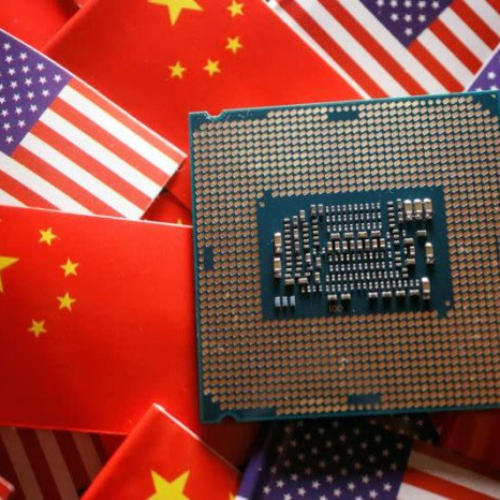



/tpg%2Fe1692314-ff65-4cb9-b1a2-3d9d5ad292da.jpeg)

In a significant development within the semiconductor industry, ASML, a leading Dutch chip equipment manufacturer, announced on December 3, 2024, that the recent US restrictions on semiconductor exports to China will not adversely affect its sales forecast for 2025. The company projects sales between 30 to 35 billion euros (approximately US$31.5 to 36.7 billion), with about 20% of these sales expected to come from China, a notable decrease from 50% this year. ASML's shares rose by 0.9% to 664.10 euros in Amsterdam following this announcement. [7d5b246e]
This announcement comes in the wake of the Biden administration's broader restrictions on advanced technology exports to China, which were detailed on December 2, 2024. These regulations prohibit sales of specific chips and machinery and add over 200 Chinese companies, including Semiconductor Manufacturing International Corporation (SMIC), to a restricted trade list. The new rules are set to take effect on December 31, 2024, and are part of a concerted effort to limit China's military chip production capabilities. [2e99cf36][24c9cb2d]
ASML's resilience in its sales forecast reflects the company's strategic positioning and the evolving landscape of the semiconductor market. The Dutch government has expressed alignment with US security concerns and is currently reviewing the implications of the new regulations. This scrutiny underscores the geopolitical complexities surrounding semiconductor technology and trade. [7d5b246e]
The recent sanctions are the third wave of restrictions imposed by the US in three years, intensifying the ongoing tech war between the US and China. National Security Advisor Jake Sullivan has emphasized the importance of safeguarding US technology from adversaries, while critics argue that the measures may not effectively target the most significant Chinese chipmakers. [3d47ee20]
As the competition between the US and China escalates, the semiconductor industry remains a focal point, with companies like Nvidia actively engaging with Chinese officials to navigate the challenges posed by these sanctions. On November 25, 2024, Nvidia's global business head met with China's vice-commerce minister to discuss potential opportunities in a more open China, highlighting the ongoing dialogue between the two nations amidst rising tensions. [0b5e78a2]
In light of these developments, ASML's ability to maintain a robust sales forecast indicates a potential shift in how companies are adapting to the changing regulatory environment. The interplay between US sanctions and China's urgent need for high-end semiconductor technology continues to shape the future of the industry, as both nations vie for dominance in this critical sector. [1e5c6008]